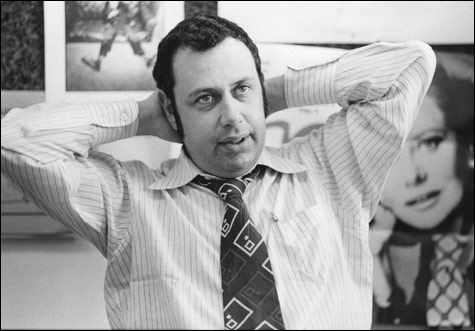
STUFF RIGHT: In addition to his print work, Loops was a valued member of WBZ’s I-Team in the late 1970s. |
He originally set out to be a jazz critic. Alan Lupo, who died September 29 at a “very young” 70, loved jazz. Swing jazz in particular, and especially Artie Shaw, the child of immigrants, the poor Jewish kid from New Haven, the product of a broken home, who managed to become both a failed writer and a brilliant jazz clarinetist.
Lupo — or as he was known in these parts, Loops — was a more than adequate musician himself. But he wasn’t much for reading music. Mostly he played by ear, from the heart. So when he first showed up at UMass-Amherst marching-band practice back in the mid 1950s, an enthusiastic Lupo fell right in step — or so he thought — with his band mates belting out The Washington Post March. As the score’s last triumphal notes faded into the ether, one lone clarinetist kept going. And going.
They all — the trombones and the tubas, the flutes and French horns — turned around and looked at him. Finally, someone clued him in: “You cut those notes in half.” Make the count twice as fast as written. Cut time.
Lupo survived, to become a devoted member of not only the marching band but the concert band. His other ambition did not fare as well. By the time he hit the Columbia School of Journalism, in 1959, Lupo had morphed from a fledgling music critic to a faithful interpreter of the lives most often overlooked.
“He could hear the music of peoples’ voices, the music of urban speech, and he could replicate it perfectly,” remembers his wife of nearly 50 years, writer and BU journalism professor Caryl Rivers. Lupo and Rivers met at Columbia and, in a profession studded with nearly as many broken marriages as empty bottles, they became one of journalism’s great love stories. A Jewish guy from working-class Winthrop and a Catholic girl from middle-class Silver Springs, Maryland — a recipe for sitcom disaster, except, “He thought I was perfect,” explains Rivers. “And I thought he was.” They raised two kids, Steve, now an FBI agent, and Alyssa, an actor, and doted on three grandchildren.